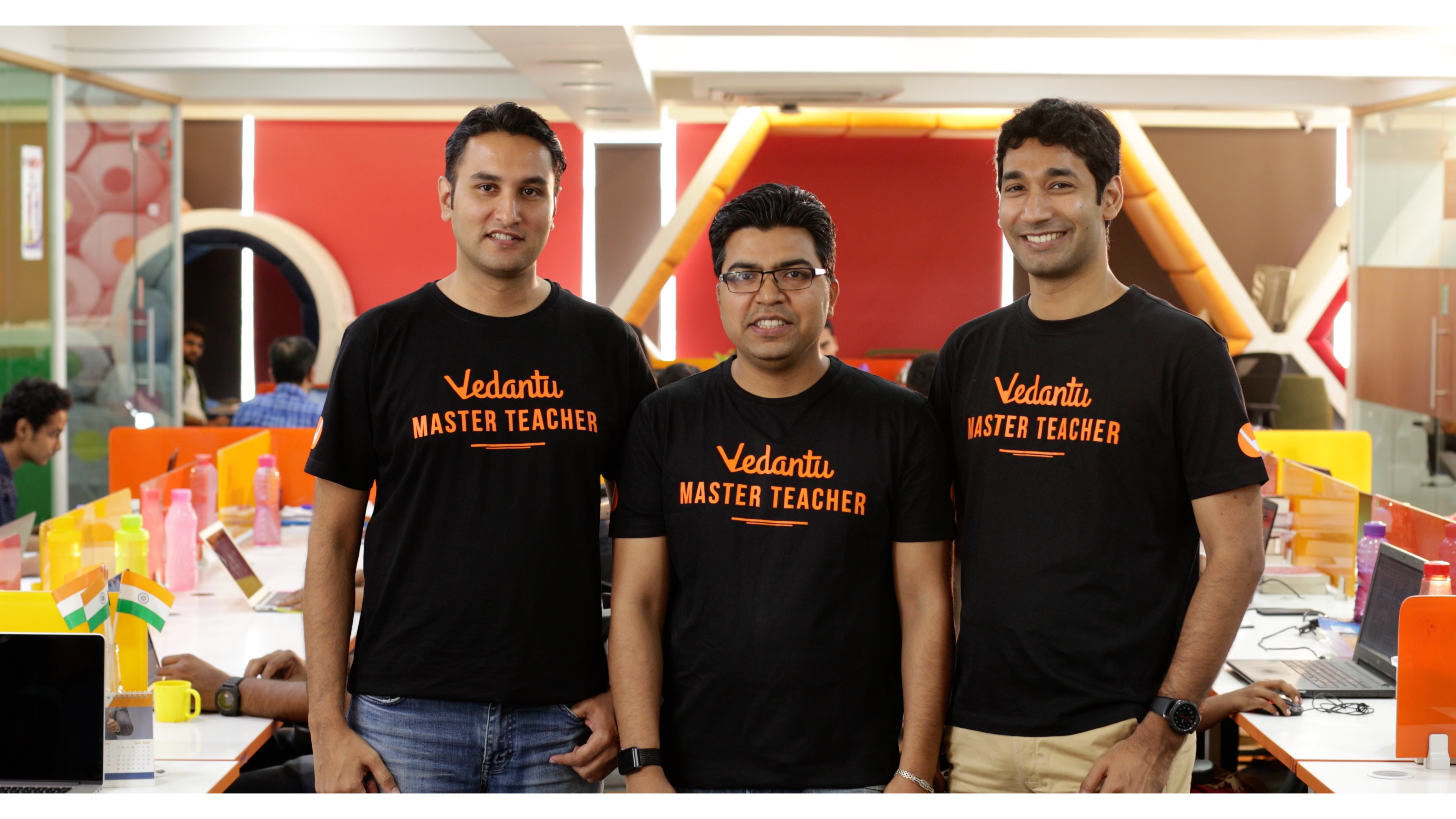Vedantu, an India-based startup that operates an online tutoring service, today announced it has raised $42 million as it races to expand its reach in the nation where tens of millions of students enter formal education and prepare for under-graduate level competitive exams each year.
The Series C financing round for the five-year old startup was led by Tiger Global and WestBridge Capital, with existing investors Accel, Omidyar India and TAL Education and Vedantu co-founders also participating in it. The startup has raised $58 million to date.
Vedantu offers a mix of recorded and live and interactive courses. Students who have enrolled for the interactive sessions are required to answer questions every few minutes by tapping on their smartphone screen. They can also raise their doubts at the end of the session.
The startup, which serves students aged between 12 to 18 (serving students in grade 6 to 12), offers a large catalog of recorded sessions at no charge to users. It generates revenue from selling subscription to live and interactive sessions, Vamsi Krishna, co-founder and CEO of the startup, told TechCrunch in an interview.

These subscriptions can vary from Rs 100 ($1.4), for students looking for sessions around a particular topic, to Rs 50,000 ($700) for long-term courses that focus on training students for under-graduate level courses, Krishna explained.
More than 1.5 million students watch educational videos on Vedantu each month, of which 30,000 are paying subscribers. The platform has amassed users from more than 30 nations, mostly those of Indian diaspora.
As part of the offering, Vedantu also tracks how much time a student takes in answering questions to determine the topics that they might be struggling to grasp. It then challenges those students to solve more problems from those topics and alerts the teachers and their assistants to follow up, Krishna said.
Additionally, teachers take frequent breaks to check with students if they understood the topic. If a substantial number of students say they have doubts, teachers share more examples to explain the subject.
Students also get to interact with teachers throughout the session through chat and their microphones. Krishna said these offerings are necessary to better coach students. It also differentiates Vedantu from other edtech startups in India.
Before starting Vedantu, Krishna, who is a teacher himself, ran Lakshya Institute that helped students prepare for under-graduate level courses until early 2014, before selling majority stake to Mumbai-based K-12 tutoring and test preparation firm MT Educare.
He said he will use the fresh capital to broaden the startup’s engineering team and product offerings, and find more users. Because Vedantu does not rely on previously recorded footage, scaling it prove challenging.
But the startup is not looking to aggressively expand its courses and its current live format can allocate more students in a session, Krishna said.

From left to right: Vamsi Krishna, CEO and co-founder, Anand Prakash, co-founder, with Pulkit Jain, co-founder and head of product.
Vedantu competes with a number of local players including unicorn Byju’s, which is widely believed to be the largest edtech startup in the world with its valuation nearing $6 billion. Byju’s, which has more than 2.4 million paid subscribers (and over 30 million users), offers courses for students in kindergarten to year 12, in addition to those preparing for competitive under graduation level courses.
Unacademy, another edtech startup in India, focuses on the same space and recently raised a $50 million round.
India has the largest population in the world in the age bracket of 5 to 24 years. The education space in the nation is estimated to grow to $35 billion in the next six years.
from TechCrunch https://ift.tt/2PweB9g
via IFTTT
Comments
Post a Comment